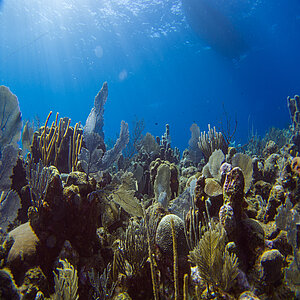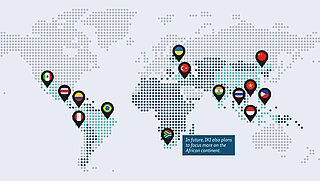Thailand
Last updated: September 2025
Thailand is one of the countries with the highest level of biodiversity in the world. According to the Convention on Biological Diversity (CBD), about 15,000 different plant species are found in Thailand. The country suffers severely from the impacts of climate change. According to the long-term Climate Risk Index, prepared by Germanwatch in 2021 for the years 2000 to 2019, the country is listed as the ninth most vulnerable country in the world. The World Bank identifies the highest risks in floods, tropical cyclones and droughts, among others.
Interface project
All priority countries of the IKI also engage in so-called IKI interface projects, which have permanent project offices in the capital city of the respective country. Alongside their own, country-specific project commission, these interface projects are also tasked with maintaining close contact to environment and climate ministries as well as networking with other relevant ministries in the field of climate and biodiversity policy. Beyond this, the interface projects also work to network all of the IKI projects in the country and region together so as to promote synergies.
The interface function is currently represented by the Project for Climate Policy and Biodiversity in Thailand.
Project priorities
- Development of policy guidelines, instruments, monitoring and evaluation (M&E) for climate and biodiversity measures;
- Promotion of climate and biodiversity objectives in the areas of marine and coastal resources and sustainable tourism;
- Promotion of mainstreaming of climate change policy into the sector ministries and at the subnational level;
- Function as an IKI interface: Promotion of dialogue on climate and biodiversity between the IKI projects in the country as well as between other actors (networking opportunities and knowledge management).
Project contact
Insights into the project work
In a nutsthell
Region: Asia
Population: 71.7 million (World Bank, 2024)
CO2eq emissions (incl. LUCF): 418.7 million t (ClimateWatch, 2022)
CO2eq emissions per capita (incl LUCF): 5.8 t (ClimateWatch, 2022)
Total energy supply (IEA, 2023):
- 12 % Coal
- 27 % Gas
- 0.5 % Hydro
- 1 % Wind, Solar etc.
- 19 % Biofuels / Waste
- 41 % Oil
- 19 % RE in electricity mix (2 % Wind, 3 % PV)
IKI projects in the country (last updated: September 2025):
- bilateral: 3 ongoing, 14 completed
- regional: 8 ongoing, 13 completed
- global: 18 ongoing, 30 completed
IKI partner ministries:
- Ministry of Natural Resources and Environment (MoNRE)
- Ministry of Energy (MoE)
- Ministry of Agriculture and Cooperatives (MoAC)
- Ministry of Transport (MoT)
- Ministry of Industry (MIND)
- Ministry of Higher Education, Science, Research and Innovation (MHESI)
The IKI Strategy
The IKI wants to maximise its impact on climate action and biodiversity conservation. To this end, it concentrates its funding activities on prioritised fields of action within the four funding areas. Another key element is the close cooperation with selected partner countries, especially with the IKI’s priority countries.
IKI partner countries
The link has been copied to the clipboard






![[Translate to English:]](/fileadmin/_processed_/d/1/csm_20230104_Karte_Thailand_AdobeStock_90197638_66e9c5ceca.jpeg)



